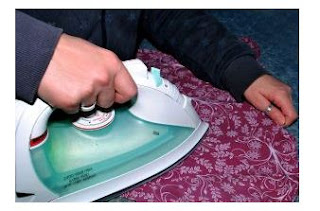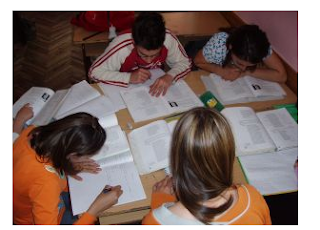One test of the correctness of educational procedure is the happiness of the child.
Maria Montessori
As parents, you can do a lot to bring up a happy child:
1. Be active outdoor: There are many advantages to spend time outdoors with your child. Apart from fresh air and sunshine, your child gets to build up his or her body and reduces stress and negative emotions. It is also a chance for them to have fun and find satisfaction in what they do physically.
2. Hug often: To hug is to show affection and it is an effective way to convey your love for your child. For the baby, your tender touch will be able to promote health and alertness. For the parents, hugging can reduce stress and calm your mind.
3. A lot of free time: Avoid filling the time of your child with a lot of activities and classes. Let the child have more free time to do what he or she likes and stimulate their imagination. Allow your child to do less and encourage relaxation that leads to creativity.
Free the child's potential, and you will transform him into the world.
Maria Montessori
4. Eat healthily: The key to good health is to eat fresh food, consume less fat and sugar and follow a balanced diet. Drink plenty of water and not sugary drinks every day. A healthy body is essential for the healthy and happy growth of your child.
5. Listen to your child: When your child is talking to you, put down whatever that you are doing and listen to him or her attentively. Be patient and don’t interrupt. It is the way to show your concern for your child. In this way, you encourage your child to communicate with you freely and willingly. Your child just needs to talk to someone.
6. Teach your child to care for others: Encourage him or her to help others by taking part in community services. This is an effective way to show your child that giving is a wonderful way to be happy too.
7. Discourage perfection: You can encourage your child to do his or her best but do not measure their performance according to your standards or expectations. It is applying stress and pressure on your child. Allow your child to learn and grow happily.
8. Stimulate the artistic talents in your child: Introduce music, art, dance, and other artistic activities to unearth the inner world of your child. To dance, draw or play music is a way to express his or her emotions and feel satisfied.
9. Teach your child to solve problems: Help your child to identify a problem and ask how he or she is going to solve it. Guide your child to take the correct steps to solve a problem. Assist your child to come up with a solution to a problem.
Too often we give our children answers to remember rather than problems to solve. ~Roger Lewin
10. Compliment your child constructively: Spot what he or she has done right and compliment accordingly. This is the best way to inspire and motivate your child. He or she will be very happy and excited to do more and better.
11. Read stories to your child: It is the best way to cultivate a reading habit in your child and to provoke his or her imagination.
12. Teach your child about a positive mental attitude: Promote confidence in your child. Let your child know that whatever happens to him or her is not important, the most important thing is to react to things positively. This is to encourage optimism, hope, and positive expectations in the mind of your child.
13. Be happy yourself: Your child follows what you do and not what you say. Be cheerful, upbeat, and smile often. Spread happiness around the house and influence your child to live with joy and happiness.
Children have never been very good at listening to their elders, but they have never failed to imitate them. ~James Baldwin
The most important thing a father can do for his children is to love their mother. ~Theodore Hesburgh














